Metro Manila, or the National Capital Region (NCR), is the Philippines’ premier urban area, the seat of the national government, and the center of economic, social, political and cultural activities.
It is the smallest of the 17 regions in the country in terms of land area (636 square kilometers), but with almost 12 million people living here, it is also the most populous and most densely populated.
The area lies on flat, alluvial plains extending to rugged hills in its eastern portion. Average elevation is 10 meters and temperatures range from 20 to 38 degrees Celsius (68 to 100 degrees Fahrenheit). Climate is tropical marine.
Metro Manila is a melting pot of cultures and people — a dynamic mix of local and international residents. Tagalog is the most common language spoken, but English is widely used and understood.
Current Events/Issues Children Face in This Region
Metro Manila, seen as a “land of opportunities,” has lured many people from different provinces to work and live here. About 35 percent of the families live in informal slum areas that are unfit for settlement, such as in low-lying flood plains, on riverbanks, near highways and railroads, and on dumpsites.
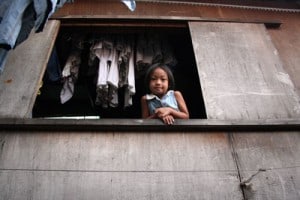
The growing urban population has increased the demand for basic social services and increased competition for limited employment. About one in ten individuals in Metro Manila is unemployed.
While reports of child abuse are declining, about 10 percent of child abuse cases in 2007 occurred in Metro Manila.
Poverty, while continuing to be a largely rural issue, has started to encroach on urban areas like Metro Manila. Here, more than 20 percent of the population lives on less than $1 a day.
If you sponsor a child in the Philippines, that child may live in one of the poorest barangays, or communities, in Metro Manila, where 21 of the Philippines’ 287 implementing church partners (ICPs) minister to about 5,000 Compassion children.
Of the 287 church partners all over the islands, 80 (27.9 percent) are in the urban areas.
Examples of child development centers in urban areas of the Philippines include:
PH-170, 204, 206, 208-212, 214, 216, 222, 224, 226, 227, 229, 233, 238-242, 253, 254, 350, 351, 438, 439, 444, 501, 583, 588, 590, 594-600, 602, 721, 722, 747, 749, 751, 802, 806, 807, 834-836, 840-844, 850, 852, 853, 900, 903, 905-907, 917-926, 928, 951, 952, 954 and 955.
Food Crisis Update
The global food crisis has impacted children and their families in Metro Manila. Due to the rice shortage and soaring prices of food staples, hunger is now at a record-high 23.3 percent — affecting about 3.75 million people in the region. In response, Compassion in the Philippines launched a Hunger and Mitigation Program, which provided rice and food items with high nutritional value to children and their families.
Home Life
Typical houses within Metro Manila are constructed of cement and have corrugated tin roofs. Many Compassion children live in small, congested homes with one or two rooms, in crammed squatter communities. Some families still do not have ready access to a safe and steady supply of water, but most families have access to electricity.
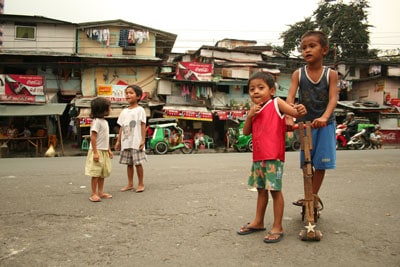
Schools and Education
The typical school year in Metro Manila runs from June through March. Children attend either in the morning or afternoon in mostly overcrowded classrooms. Six years are required for elementary school, and another four years are necessary to graduate from high school. While public primary and secondary education is free, most Compassion-assisted children need support for school uniforms, textbooks, allowance and transportation expenses.
Most families in Metro Manila put a high premium on education. The region has the country’s highest basic literacy rate at 97 percent.
Church and Religion
Evangelicals make up less than 2 percent of the population in Metro Manila. Our church partners in this region come from 14 unique local evangelical denominations. A variety of church worship services are usually held in Tagalog, but English sessions are also common.


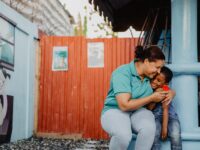
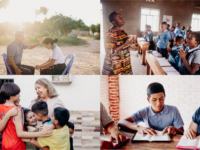
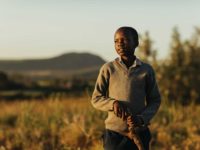


5 Comments |Add a comment
Thats a sad situation for these families but thank God for Compassion…I have Philippino friends-wonderful people!
Thank you so much for sharing these posts, Edwin. I just visited Manila last spring, and flew to Cagayan de Oro to meet our recent LDP graduate. It was a wonderful experience, and we were able to see both rural and urban life in the Philippines. I must say that the country is incredibly beautiful, but there truly are many, many needs. We were so blessed by our experiences with the lovely people there.
In 1988 my sister was a beneficiary of compassion ministry and we were in a city at that time. She is now a call center agent. Sad to note the situation in metro manila is the same with most other urban cities in the rest of the Philippines. Personally, I thank God that Compassion is still in the ministry of helping kids.
This is a great article and a good insight into what is going on in Metro Manila. I’m proud to sponsor a Compassion child (in Ecuador) and therefore am proud of the work that compassion does around the world. The situations in Metro Manila could be seen as hopeless to the untrained eye but to know that Compassion is present seems to reassure me that God is in control. Thanks for the work you do!